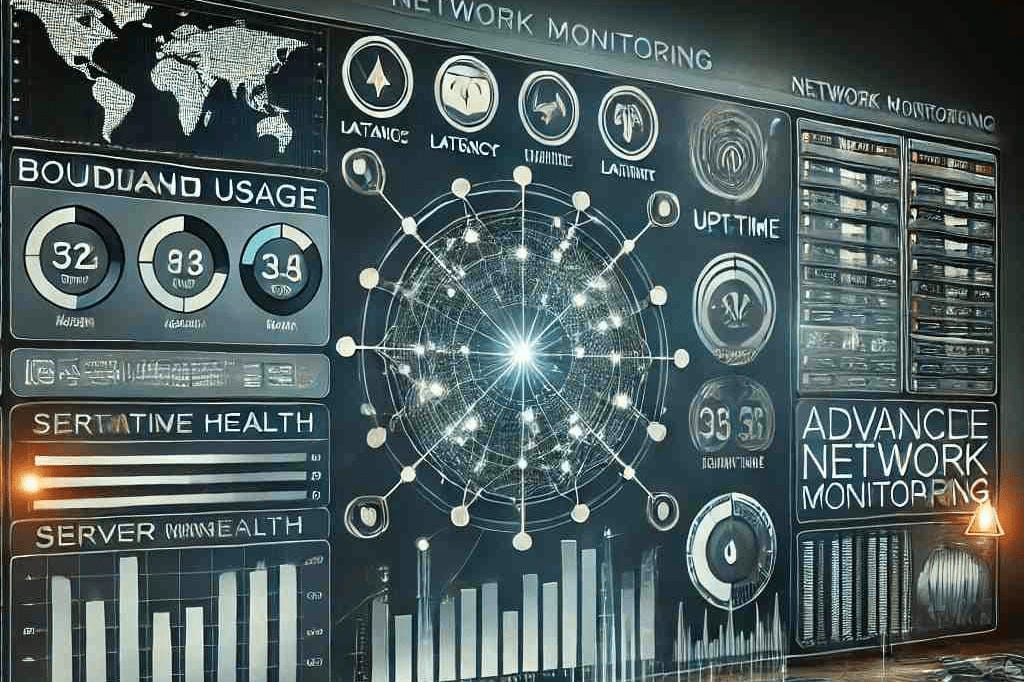03 October 2024
Why is Network Monitoring Important for Your Business?
Nowadays, a strong and reliable IT network is the main foundation for most business operations in the company. As companies rely more and more on digital systems, websites, cloud services, and other IT infrastructure, network monitoring becomes a critical component that cannot be ignored. Network monitoring allows companies to maintain the performance of their network, prevent disruptions, and ensure that the system runs efficiently. Here are some reasons why network monitoring is essential for your business.
1. Preventing Costly Downtime
Downtime, or the time when a system cannot be accessed or used, can have a significant impact on a business, especially if it occurs at an undesirable time. In some cases, downtime problems can cause massive financial losses, potentially losing potential customers, and ultimately damaging the company's name and reputation. Therefore, network monitoring that can be done at that time can prevent unwanted things. With this quick and direct monitoring, it is possible for companies to predict and detect potential problems that can be caused by interference outside the company's constraints. The monitoring system will provide early warnings if there are signs of problems, such as server overload, too high bandwidth usage, or interference with network connections.
With the right precautions, downtime can be minimized or even prevented completely. This gives the company a competitive advantage, keeping operations running without a hitch and reducing the risk of lost revenue.
2. Improving Network Performance
In addition to preventing downtime, network monitoring also plays an important role in ensuring the network runs efficiently. Through monitoring, you can track various metrics such as bandwidth usage, latency, throughput, and packet loss. With data collected continuously, the IT team can analyze network performance and determine areas that require improvement.
For example, if bottlenecks are found in the network that cause access delays to business applications, network monitoring will provide the necessary information to identify the source of the problem. Thus, companies can take the necessary actions to improve network performance and ensure that all business applications run smoothly without interruption.
3. Better Network Security
Network security is a top priority for every company, especially in the midst of increasing cyber attacks. Network monitoring plays an important role in detecting suspicious activity that may indicate hacking attempts, malware, or DDoS (Distributed Denial of Service) attacks. With effective monitoring, companies can spot anomalies such as sudden increases in traffic or unusual access patterns.
The monitoring system will notify the security team if there is any indication of a breach, allowing them to take immediate action. This is an important step to prevent data leakage, information theft, or service disruption caused by cyberattacks.
provide great benefits to businesses of all sizes. Through the implementation of effective network monitoring, companies can ensure their operations remain stable, efficient, and protected from threats that can disrupt business.
4. Facilitates Network Scalability
As the business grows, network requirements will also increase. Network monitoring allows companies to measure network performance on an ongoing basis and determine when it is necessary to increase capacity or optimize existing infrastructure. With a better understanding of the use of network resources, companies can plan for better growth.
Network monitoring also helps in identifying devices or parts of the infrastructure that are outdated and need to be replaced or upgraded. This is especially important for companies that continue to grow and need a network capable of supporting increasingly large workloads.
5. Facilitate Proactive Maintenance
Proactive maintenance is needed rather than waiting for a problem to arise. Therefore, proactive maintenance must be carried out which allows the IT team to monitor problems quickly and can be resolved immediately. With constant monitoring, companies can identify potential problems before they become a crisis. For example, if a device is nearing its capacity limit, preventive measures such as capacity upgrades or device replacements can be taken before it causes disruption.
Network monitoring is a crucial part of effective IT infrastructure management. With the ability to prevent downtime, improve performance, maintain security, and facilitate scalability and proactive maintenance, network monitoring provides great benefits to businesses of all sizes. Through the implementation of effective network monitoring, companies can ensure their operations remain stable, efficient, and protected from threats that can disrupt business.
Is this information helpful?
